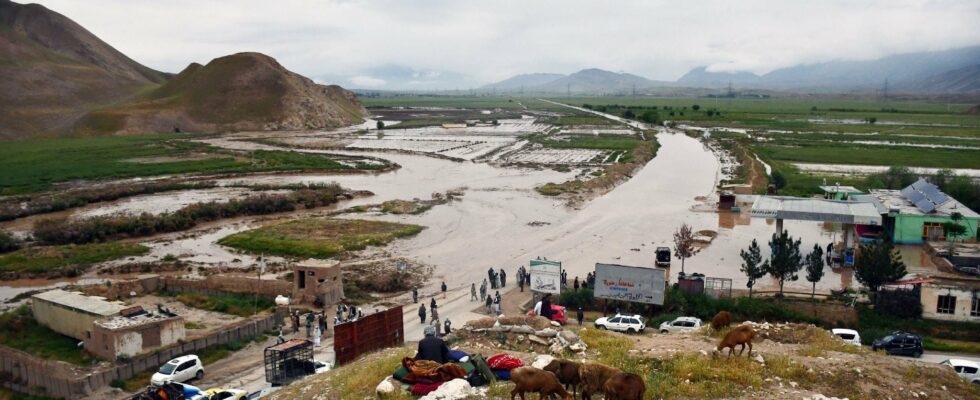More than 300 people died during flash floods in the northern province of Baghlan, in Afghanistan, the World Food Program (WFP), a UN agency, announced to AFP this Saturday, May 11. “We can confirm, based on available information, that 311 people were killed in Baghlan province,” said Rana Deraz, a WFP spokesperson. At least “2,011 houses were destroyed and 2,800 damaged,” she added.
Rescue efforts were underway this Saturday in Baghlan, where the International Organization for Migration (IOM), another UN agency, had previously announced a provisional death toll of 200. Many contradictory reports have been circulating since, on Friday, rivers of mud suddenly engulfed thousands of homes and hectares of crops. The Defense Ministry announced that a state of emergency had been declared in large areas of the northeast hit by severe flooding.
The Taliban authorities, for their part, report “131 dead and more than a hundred injured”. “Many people are missing,” Interior Ministry spokesperson Abdul Mateen Qani told AFP, without providing figures. Survivors were trying to walk through streets covered in mud and laden with debris, noted an AFP photographer in Laqayi. Residents carried remains before their burial and a vehicle brought food and water to residents of this locality in Baghlan-i-Markazi district.
“Vulnerability of Afghanistan in the face of the climate crisis”
The heavy toll is explained in particular by the fact that “people tend to live near waterways”, Mohammad Khater, vice director of OCHA, the humanitarian affairs office of the UN, explained to AFP. UN. Floods in this abnormally rainy spring have affected other provinces of Afghanistan, one of the countries in the world most vulnerable to climate change, but also one of the most poorly prepared for its consequences according to scientists.
Government spokesperson Zabihullah Mujahid spoke on X of victims and floods in Baghlan but also in the provinces of Badakhshan (north-east), Ghor (central-west) and Herat (west). The Ministry of Defense indicated this Saturday that “operations to distribute food, medicine and first aid kits to victims had started”. “The air force began to evacuate residents as the weather improved” and transferred more than a hundred injured people to hospitals, he added.
The UN special rapporteur for human rights in Afghanistan, Richard Bennett, said on X that these floods “were a clear sign of Afghanistan’s vulnerability to the climate crisis”. European Union spokesperson Nabila Massrali said she was “shocked” at the loss of “hundreds of lives”.
Since mid-April, flash floods and floods have already caused around a hundred deaths in ten provinces of the country and no region has been spared. They also destroyed hundreds of homes and submerged much agricultural land in a country where 80% of the more than 40 million Afghans depend on agriculture for their survival.
